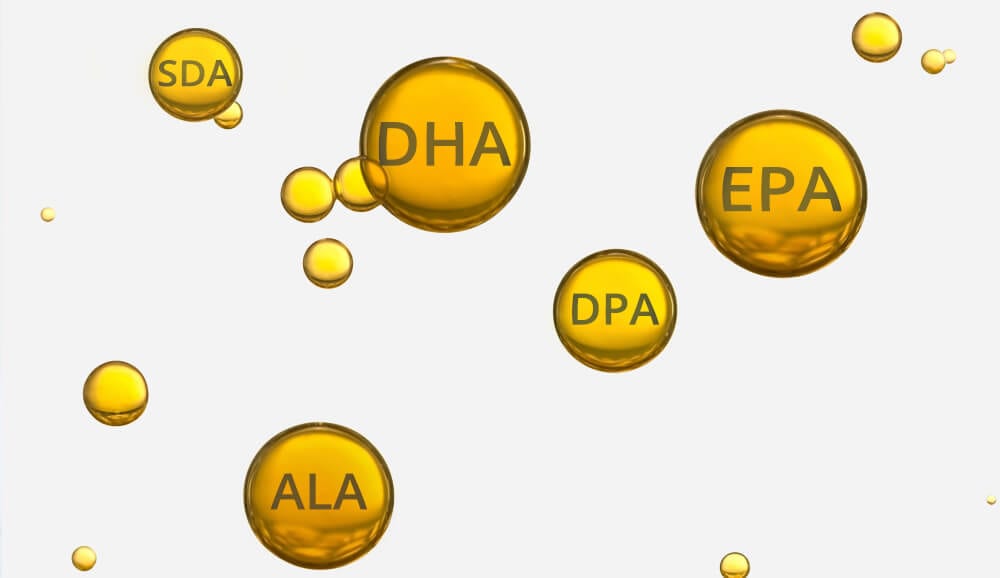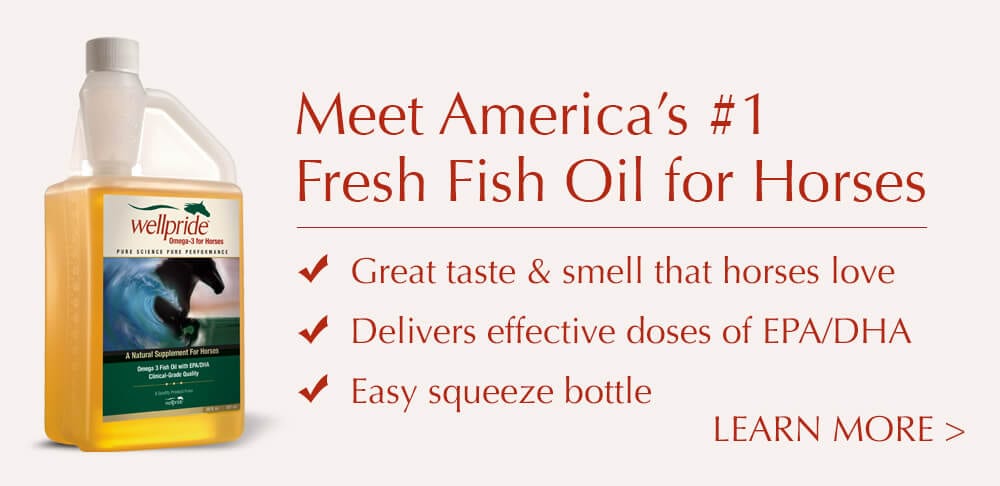A Show-Ready Shine Starts with Omega-3s
There’s no question about it: Successful showing starts with catching a judge’s eye. A great way to win attention at the in-gate is with putting a gleaming coat on your horse.
One simple technique to turning up the shine? Ensure your horse gets enough omega-3 fatty acids. Let’s take a look at why omega-3s matter and what omega-3 sources work best for maximum luster.
Why Feed Omega-3s for a Shiny Coat
Your horse’s skin is his largest organ. So if your horse suffers from skin problems – whether that’s allergies or a patchy, dry coat – it’s not only hard to make a good first impression. It may also be a signal that your horse’s overall health needs support.
Feeding omega-3s may help with dermal problems and regrow a coat worth showing off. Here’s why:
Omega-3s Support Healthy Skin Functioning
Essential fatty acids, like omega-3s, are structurally important to skin cells in all mammals. The skin is made up of a layer of lipids, which includes a sizable amount of fatty acids (about 15%).
These fatty acids play a critical role in proper skin functioning. Notably, they help to:
- Regulate the production of sebum (the oil that moisturizes and protects skin/hair from damage and water loss).
- Improve hydration and skin barrier strength by enhancing the composition of the fats in the skin and hair.
- Improve coat growth.
What happens when your horse doesn’t get enough essential fatty acids? Studies show that when mammals are deprived of these beneficial fats, it can lead to skin problems, like dermatitis and hair loss.
Omega-3s Soothe Inflammation
While many types of oils promote a shiny coat – including corn oil – omega-3-based oils have another big benefit. They fight inflammation.
Chronic inflammation exacerbates many equine skin problems. It stokes redness, irritation, and makes it harder for the skin to heal from infection and allergies.
Choosing an anti-inflammatory omega-3 supplement can help take the edge off itchy, dry and inflamed skin. Even better, their anti-inflammatory benefits extend beyond the skin to promote joint, hoof, digestive and respiratory health as well.
This anti-inflammatory power makes omega-3 oils a better long-term strategy for promoting coat shine compared to pro-inflammatory corn oil and the likes.
What Kinds of Omega-3s Are Best for Coat Health?
“There is an old saying about horses that all you need for their health is good forage and fresh water,” says Anne-Marie Chalmers, M.D., co-founder of Wellpride® fish oil for horses. “Unfortunately, the world we live in today is not the world of 50 years ago.”
“What happens,” Dr. Chalmers asks, “when a key fatty acid in forage virtually disappears due to modern agriculture practices? We end up with a glut of inflammation issues that require more than good forage to counteract.”
Which omega is most effective? The omega-3 family includes many fatty acids, all of which have different roles in the body. EPA and DHA, which are mainly found in fish, have the best anti-inflammatory properties.
Omega-3s from Plants vs. Fish
There are different types of omega-3s, depending on the source. Marine sources, like fish oil, contain two fatty acids called EPA and DHA. EPA and DHA omega-3s are considered to have the greatest anti-inflammatory benefits.
Plant-based omega-3 products, like flaxseed, only contain the fatty acid ALA. ALA does not have the same anti-inflammatory effects as its marine cousins.
While in the past, it was believed that some ALA might convert into EPA and DHA in the horses’ bodies, recent studies have found that this conversion is minimal and that supplementing with EPA and DHA is more efficient.
“This is precisely why Wellpride makes an equine fish oil that delivers high amounts of EPA and DHA,” says Dr. Chalmers. “The results speak for themselves. Typically within 12 weeks, the horses’ coat starts to gleam.”
Get A Glowing Coat with Wellpride
“After a quick turnout assessment, I always notice condition,” USEF judge Ellen Shevalla told The Plaid Horse in 2019. “I want the horses…with a glowing coat.”
Start feeding Wellpride fish oil today to build the coat your horse deserves. You can learn how other horse owners have used Wellpride to combat coat issues ranging from rain rot to summer itch– and of course, for a healthy shine – on Wellpride’s Success Stories page.
References:
1. Khnykin, D., Miner, J. H., & Jahnsen, F. (2011). Role of Fatty Acid Transporters in Epidermis: Implications for Health and Disease. Dermato-Endocrinology, 3(2), 53–61.
2. Roman, K., Wilk, M., Książek, P., Czyż, K., & Roman, A. (2022). The Effect of the Season, the Maintenance System and the Addition of Polyunsaturated Fatty Acids on Selected Biological and Physicochemical Features of Rabbit Fur. Animals: An Open Access Journal from MDPI, 12(8), 971.
3. Pagan, J. D., Hauss, A. A., Pagan, E. C., Simons, J. L., & Waldridge, B. M. (2022). Long-Chain Polyunsaturated Fatty Acid Supplementation Increases Levels in Red Blood Cells and Reduces the Prevalence and Severity of Squamous Gastric Ulcers in Exercised Thoroughbreds. Journal of the American Veterinary Medical Association, 260(S3), S121-S128.







